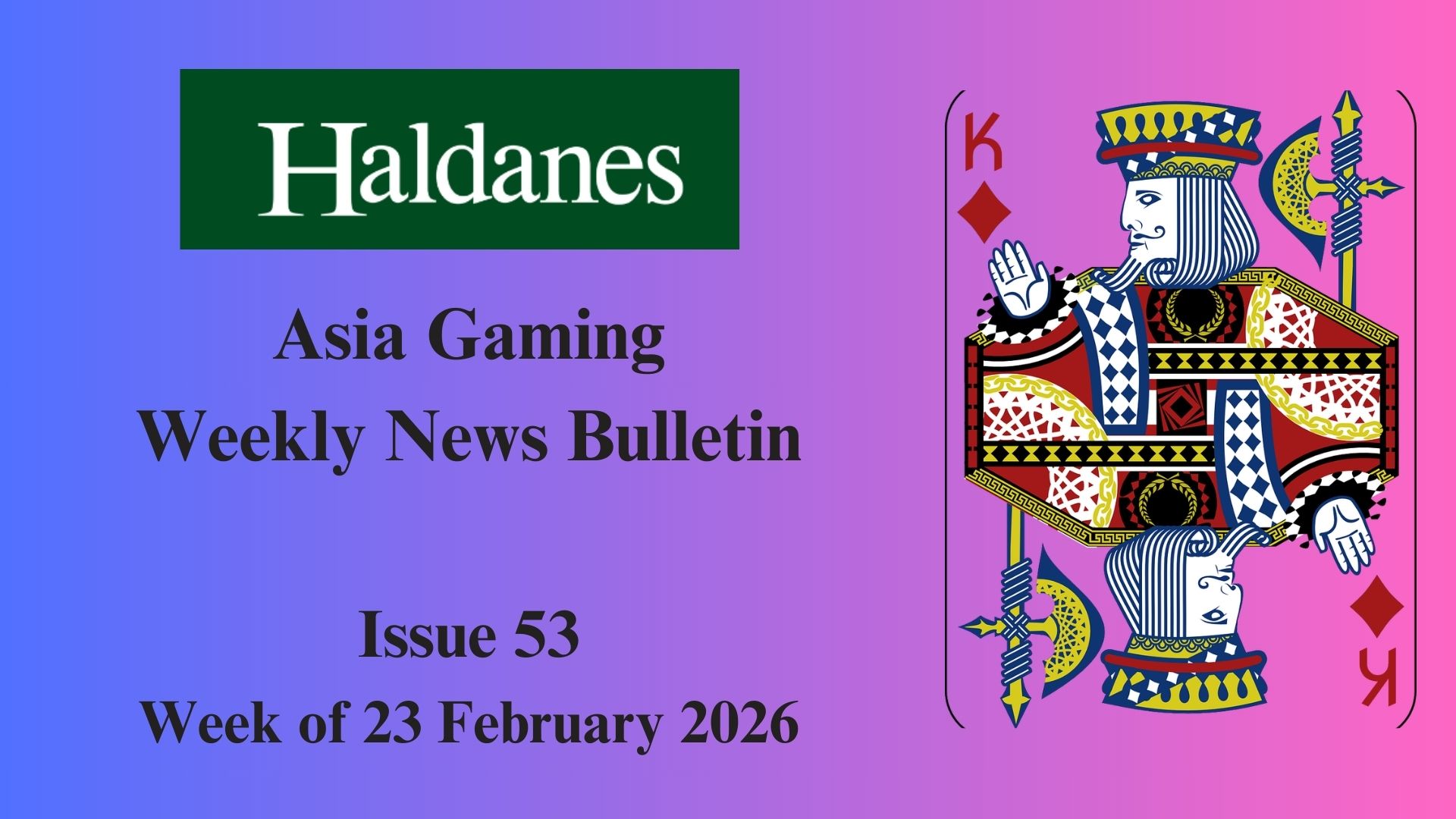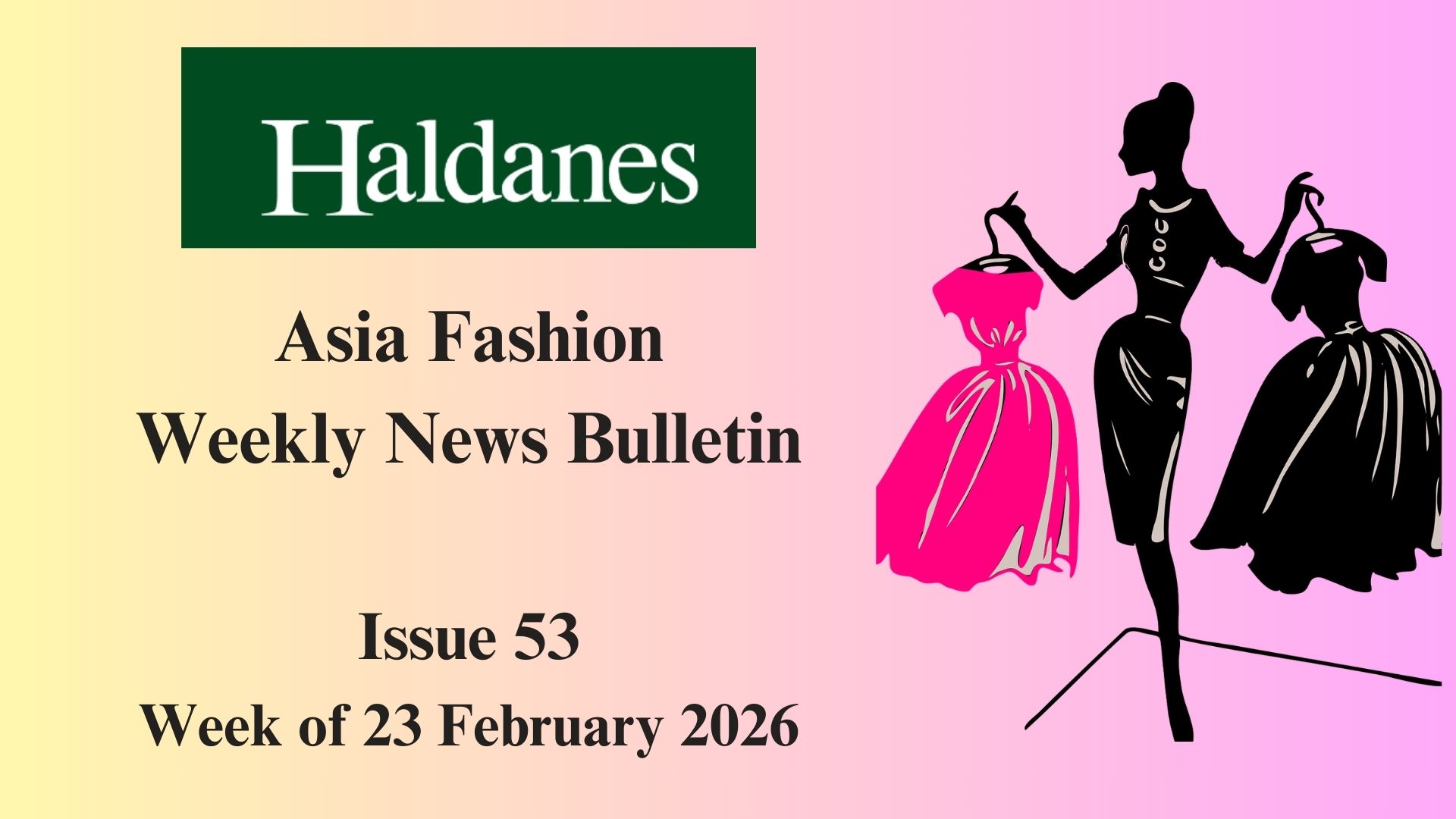Asia Fashion Weekly News Bulletin – ISSUE 31 Week of 8 September 2025
(1) Dior fined in China for sending data overseas without security screening
Aninvestigation following a May data breach found that the luxury house violated consumer rights protected by China’s Personal Information Protection Law (PIPL).
(2) Blackpink’s Lisa supercharges Moynat x Labubu drop
The K-pop megastar and Pop Mart’s monster unite with LVMH maison in a capsule that turns toy fandom into fashion firepower.
(3) Ami Paris Appoints Zhou Yiran Its Latest Global Ambassador
The rising actor and singer Zhou Yiran is the Parisian brand’s first global face from China.
(4) Zara Rival Urban Revivo Steps Up Global Push With New Stores in Fashion Capitals
The fast-fashion retailer is expanding with new store openings in London, New York, and Hong Kong, aiming for 200 overseas locations within five years.
(1) Dior fined in China for sending data overseas without security screening
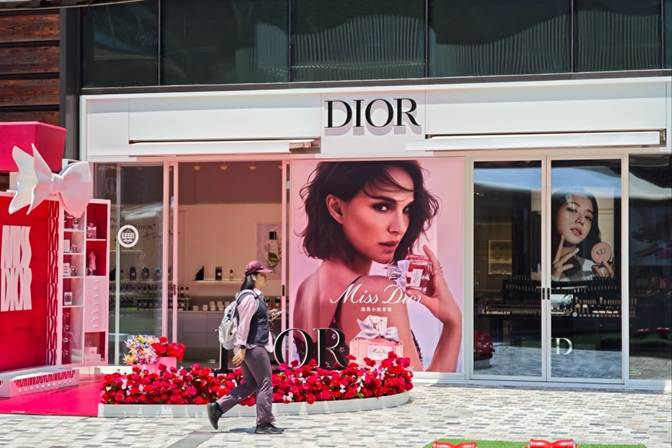
(Photo Credit: SCMP)
Chinese authorities have fined Dior’s Shanghai subsidiary for illegally transferring customer data overseas without mandatory security screening, marking the first major enforcement case under China’s Personal Information Protection Law (PIPL) since its 2021 implementation. According to Xinhua’s report citing the National Cybersecurity Notification Centre, Dior Shanghai violated PIPL by transmitting Chinese customers’ personal data to its France headquarters without conducting a required data export security assessment. The company also failed to establish standard contracts for data transfers or obtain proper personal information protection certification.
The investigation revealed Dior Shanghai neglected critical PIPL requirements: customers were not fully informed about how their data would be used in France, and the company failed to obtain legally mandated “separate consent” for international transfers. Additionally, Dior did not implement basic security measures like encryption or anonymization for collected personal data. This follows Dior’s May 2024 disclosure of an unrelated data breach affecting ~950,000 Hong Kong customers where names, passport numbers, and fraud records were compromised (though financial data remained secure).
The fine, whose amount remains undisclosed, sets a significant precedent for PIPL enforcement, emphasizing China’s strict data sovereignty stance. Under PIPL, companies must conduct security assessments, anonymize data, and obtain explicit consent before transferring sensitive information abroad. The Shanghai case compounds Dior’s existing data security challenges, with Hong Kong’s privacy commissioner advising affected customers to change passwords and monitor for phishing attempts. This dual-breach scenario highlights growing regulatory risks for multinationals operating in China’s tightly governed digital landscape.
News Source: https://www.scmp.com/news/china/article/3324865/dior-fined-china-sending-data-overseas-without-security-screening
(2) Blackpink’s Lisa supercharges Moynat x Labubu drop
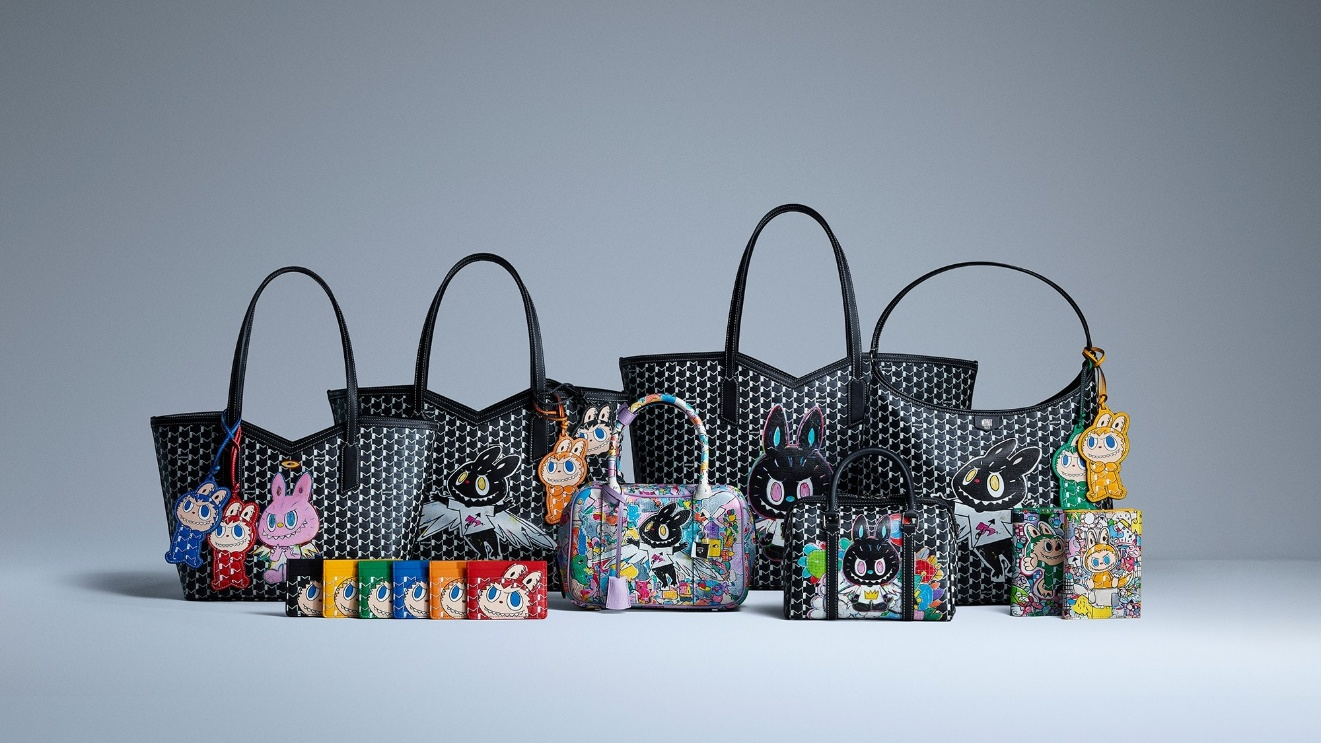
(Photo Credit: Moynat)
Hong Kong artist Kasing Lung, creator of the iconic Labubu character, celebrates its 10th anniversary by partnering with French luxury house Moynat for a landmark capsule collection launching October 11. This collaboration—marking the first time Lung’s The Monsters universe (featuring Labubu, Zimomo, and King Mon) appears with a European luxury brand—will debut in Shanghai before touring Paris, Taipei, Hong Kong, and the U.S. The collection includes monogram canvas totes, mini trunks, leather handbags, and passport holders, blending high fashion with playful urban artistry.
The campaign leverages major celebrity power, fronted by Malaysian Hollywood icon Michelle Yeoh and Hong Kong actor Tony Leung, emphasizing its Asian cultural roots, alongside French fashion editor Carine Roitfield and ballet star Guillaume Diop. Labubu’s transformation from niche toy to luxury accessory reflects a broader trend: its earlier visibility on Hermès Birkins, adoption by celebrities like Naomi Osaka and Blackpink’s Lisa, and now a Moynat partnership cement its status as a serious fashion collectible crossing into mainstream luxury.
This move signifies Labubu’s evolution into a bona fide fashion IP, building on prior collaborations with Uniqlo and Chinese designer Pronounce. The Moynat capsule represents a strategic escalation into Western luxury markets, highlighting the character’s resonance with fashion-forward consumers and confirming the commercial viability of artist-driven narratives in high-end fashion. This partnership not only honors a decade of creative legacy but also positions Labubu as a bridging force between street culture, art, and elite luxury.
News Source: https://jingdaily.com/posts/blackpink-s-lisa-supercharges-moynat-x-labubu-drop
(3) Ami Paris Appoints Zhou Yiran Its Latest Global Ambassador
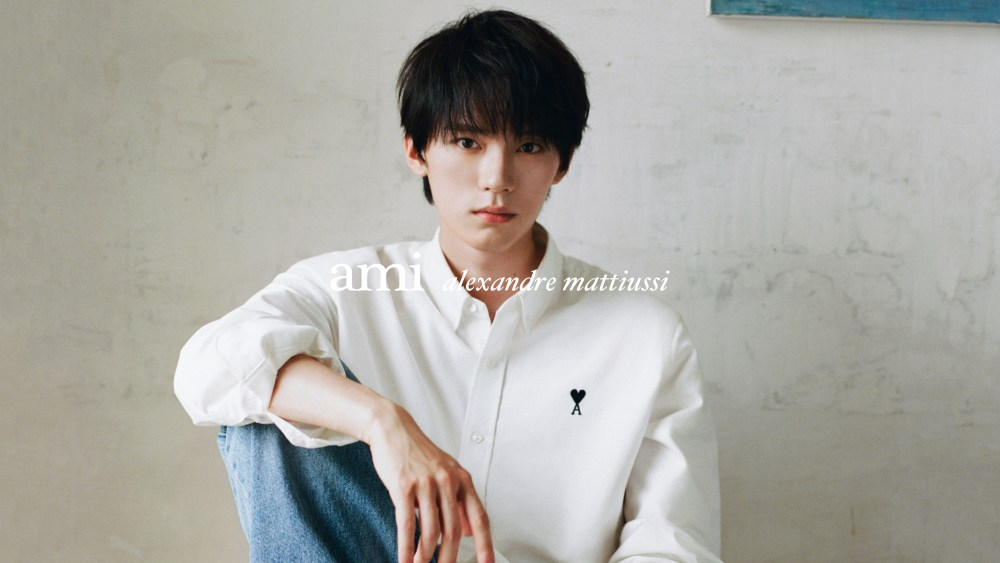
(Photo Credit: Ami Paris)
Parisian fashion label Ami Paris has announced Chinese actor and singer Zhou Yiran as its newest global ambassador, marking a significant elevation of their long-term relationship. The brand, backed by Hongshan Capital, highlighted that Zhou has frequently worn Ami Paris for public appearances, making the partnership a natural progression from mutual admiration to formal collaboration. This move strengthens the brand’s ties with the Chinese market and aligns with its ethos of love and inclusivity.
Zhou Yiran expressed enthusiasm about the appointment, describing Ami Paris as embodying “love, friendship, and inclusivity” and comparing the brand to a relaxed and authentic life friend. He emphasized his eagerness to collaborate creatively with the label, aiming to explore a fashion style that is both joyful and free-spirited. His statement reflects a genuine personal connection to the brand’s values and aesthetic.
With a substantial social media following of 6.2 million on Weibo and 4.7 million on Douyin, Zhou’s ambassadorship is poised to amplify Ami Paris’s visibility and engagement among Chinese consumers. This partnership not only leverages his influence as a multi-talented entertainer but also strategically positions the brand within China’s growing luxury fashion landscape, blending European design sensibility with localized celebrity appeal.
News Source: https://wwd.com/fashion-news/fashion-scoops/ami-paris-zhou-yiran-global-ambassador-1238114221/
(4) Zara Rival Urban Revivo Steps Up Global Push With New Stores in Fashion Capitals
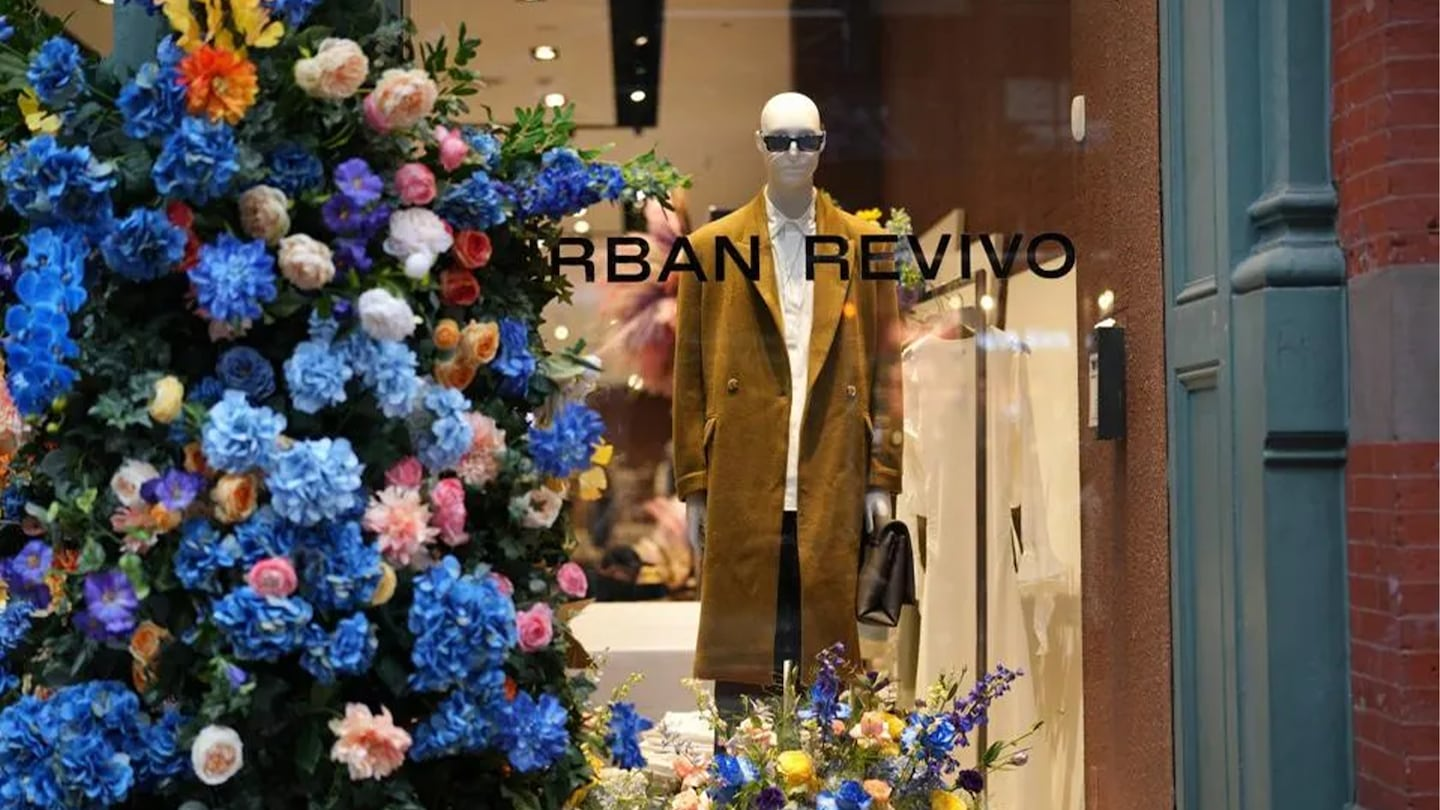
(Photo Credit: Urban Revivo)
Chinese fast-fashion brand Urban Revivo (often compared to Zara) is accelerating its global expansion with a new 2,700-square-meter store in London, its second in the city this year, amid weakening domestic consumer spending due to China’s property crisis and wage concerns. Part of a broader trend among Chinese consumer brands like Luckin Coffee and Pop Mart seeking growth overseas, Urban Revivo operates over 400 stores worldwide and aims to open 200 international locations in the next five years, with recent entries in New York, Hong Kong, and Southeast Asia.
Leo Li, CEO of parent company Fashion Momentum Group (FMG), emphasized that global expansion has been core to Urban Revivo’s strategy since its 2006 founding, with a target of generating over 5 billion yuan ($698 million) from overseas markets by 2030. To address localization challenges, the brand established a European design center in 2024 to tailor products to Western tastes, avoiding pitfalls faced by Western brands in China. Consultants like Gabor Holch warn that data adaptation, political factors, and sustainability norms could pose hurdles, noting that Chinese firms must “start from zero” in overseas data environments.
Despite challenges, industry experts like Chengcheng Li of SuperHeroes argue that Urban Revivo’s Chinese origins won’t hinder success if products resonate emotionally with Western consumers. Backed by investors Hongshan Capital and BA Capital, FMG, which reported 7 billion yuan ($978 million) in sales last year, also plans a long-rumored public listing, positioning Urban Revivo as a formidable player bridging Eastern manufacturing agility with global fashion aspirations.

